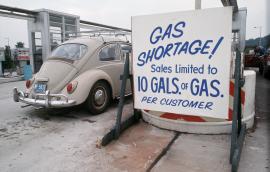Mental Health in High Schools: A Houston Survey
A survey of Houston area high school students finds the highest levels of depression occur among older students and transgender youth. This issue brief from the Child Health Policy Program explains how demographic factors affect survey outcomes, noting that school absenteeism and behavioral issues are also associated with students’ poor mental health.
Zoabe Hafeez, Lilian Dindo, Sheela Gavvala, Katarina Reyes, Jan Lindsay, Christopher F. Kulesza May 1, 2024









